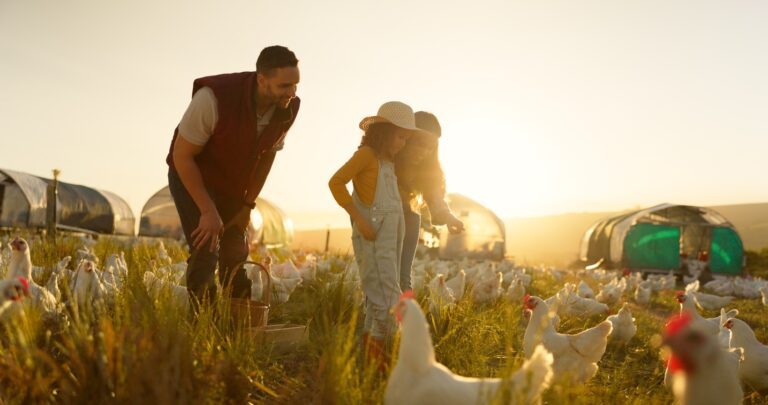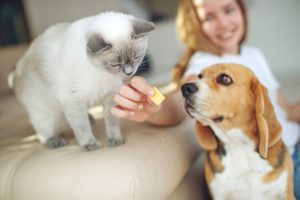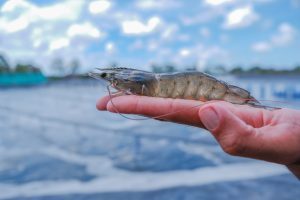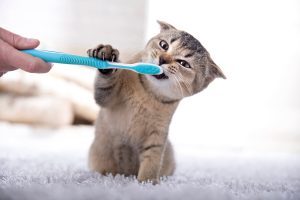Human health does not just depend on us; it is deeply linked to the environment and all living beings that share our ecosystem, from microorganisms to large animals. To live in harmony, we must maintain a state of balance.
It is in this context that the “One Health” approach emerges. It is an integrated and unifying approach that aims to sustainably balance and optimize the health of people, animals, and ecosystems. After all, we are all interconnected. We seek to maintain and improve human, animal, and environmental health.
The World Organization for Animal Health (WOAH) illustrates the importance of this interdisciplinary approach through impressive data. Human actions have severely altered 75% of terrestrial and 66% of marine environments. Furthermore, 60% of pathogens that cause human diseases originate from domestic animals or wildlife, and 75% of emerging human infectious diseases have an animal origin.
There is growing evidence that climate change, unsustainable agricultural practices, globalization, and wildlife trade increase the risk of disease transmission between animals and humans and cause environmental imbalance. In this context, understanding our interdependence is essential, as illustrated below.

How One Health contributes to human health and nutrition
Food production, preparation, and consumption are deeply linked to human health and the planet’s well-being. The global population growth impacts the food supply, which is still largely dependent on livestock.
A meal may contain ingredients from different geographic origins and production practices. For instance, farmers worldwide need to rear animals at high densities, resulting in environmental imbalances and increasing the risk of animal disease outbreaks. According to World Organization for Animal Health (WOAH) data, more than 20% of global animal production losses are due to animal diseases.
Therefore, it is essential to understand that the ecosystem and biodiversity health are critical to ensuring sustainable and healthy food production for the global population. It includes vaccination, adequate management practices, quality nutrition, environment, and suitable genetics to maintain livestock health and ensure their food products are safe for human consumption.
An example of the interconnection between nature, animals, and humans is disease prevention by applying responsible animal management practices, vaccinating, monitoring animal gut and immune health, and supplying adequate and quality nutrition to reduce the risk of zoonotic diseases and protect human health.
After all, zoonoses and foodborne diseases have significant economic impacts, as they affect animal productivity, health systems, and life quality. Therefore, investing in more sustainable and safe food production practices is essential to promote people’s health and well-being.
The importance of One Health for pet and human health
Humans and pets share the same environment, and this interaction will impact their health. As it is considered a member of the family, water and food containers, toys, beds, and all other items are close to the human family items. In some cases, feeding occurs side by side.
Therefore, it is crucial that we take care of the health and hygiene of animals and the environment. Humans are in contact with urine and feces when cleaning the environment, and animals often perform their physiological needs indoors.
Taking care of hair, skin, and oral hygiene is extremely important to minimize exposure to undesirable situations, such as allergens and unwanted microorganisms. Animals can be hosts to parasites, such as fleas and ticks, and effective control of these parasites is vital for the health of pets and the people who live with them.
Vaccination is an effective way to protect pets’ health and helps prevent diseases that can affect humans, so it’s crucial to keep your pet’s vaccinations up to date.
As for pet food, a nutritionally complete and balanced diet prevents diseases, strengthens the immune system, and improves intestinal health, contributing to the prevention of zoonoses.
“I am passionate about the pet industry, and I believe that this industry was born with the concept of One Health. The pet industry can transform waste from the food industry into nutritious and safe ingredients for pets. Biorigin’s yeast-derived products are the best example of this, as some come from the food industry and the sugar cane industry, which have several benefits for animal health in addition to being safe and with full traceability. Our yeasts are ingredients of natural origin and support the pet industry in developing foods that follow the trends and needs of pets, such as humanization, premiumization, and specific nutrition, in addition to being part of a sustainable chain,” is what Thaila Cristina Putarov, Global Animal Nutrition and Health Business Manager at Biorigin, says.
Several scientific studies demonstrate the benefits of the human-animal bond, such as reducing stress, anxiety, and loneliness and promoting general well-being. Improved mental health is one of the significant benefits of the relationship between humans and pets.
According to a survey by The Human Animal Bond Research Institute (HABRI – 2021) with pet owners in the US, 87% said they experienced improvements in mental health after adopting a pet, and more than one in five owners have had a pet recommended for their health by a doctor or therapist.
The One Health concept encourages research and innovation in animal nutrition, seeking to develop safer, healthier, and more sustainable pet foods.
Biorigin has been offering ingredients of natural origin for 20 years to meet the demands of the pet food market, providing solutions that help improve intestinal health, pet immunity, and the attractiveness of food. As with our products, MacroGard, a scientific and commercial reference, is the source of beta-1,3/1,6-glucans most studied and used in animal feed to maintain health and well-being. It has proven to be an effective tool for skin and hair health, bone health, weight control, and pet immunity. The prebiotics ActiveMOS and HyperGen are rich in mannan oligosaccharides (MOS) that function as substrates for the microbiota and are essential for maintaining intestinal health and local immunity.
Additionally, Biorigin’s yeast extracts can also make food tastier for pets. To learn more, read our article on palatability and discover the PalaUp line.
Enhance the health of your farm animals with Biorigin
The One Health concept promotes sustainable production practices and adequate animal handling, which influence the nutritional quality of the food available to humans.
Livestock should be free from pathogens and contaminants to ensure food safety and production profitability. It requires maintaining and overseeing animal rearing and feeding facilities, using appropriate preventative treatments, and ensuring the safety of workers exposed to chemicals and pathogens.
Another risk factor that has become important in recent decades is the growing antibiotic resistance, driving changes in animal production practices and regulations in several countries, as it is perceived as a global health threat.
An example is fish reared in cages at sea that share the same environment with different microorganisms, including viruses and bacteria. Some are beneficial, consisting of the non-pathogenic microflora, while others are pathogenic. Gut microbiota imbalance causes disease, resulting in apathy, loss of appetite, stunted growth, and mortality, as the fish’s immune system actively responds to fight invading pathogens.
Feeding beta-glucans, immunomodulating compounds, is an effective natural approach to strengthening fish defenses. Biorigin’s MacroGard (minimum concentration of 60% purified beta-glucans) has been widely studied and proven effective in approximately one hundred studies. Those studies have shown that MacroGard significantly increases the survival of fish vaccinated against pathogens.
Naraid Suanyuk and Akkarawit Itsaro (2011) observed that the survival rate of tilapia vaccinated against Streptococcus iniae and fed MacroGard was 4.7 times higher compared with the control group and 29% higher compared to the group that received the vaccine alone.
Roberti Filho et al. (2019) evaluated the effects of MacroGard and vaccination of Atlantic salmon (Salmo salar) challenged with M. viscosa. The results demonstrated that the vaccinated and MacroGard-fed fish had a 90.7% survival rate, which was 26.5% higher than those only vaccinated. To read the complete study, click here.
MacroGard also aids wound healing and alleviates the effects of stress caused by fish handling and transport. For more information on how MacroGard can improve the natural defenses of your fish, visit our website.
Biorigin
The One Health approach encompasses human, animal, and environmental health, and it is particularly relevant when addressing food safety, nutrition, zoonosis control, and pollution issues. It aims to prevent, detect, contain, eliminate, and respond to public health threats involving agents and events that affect both humans and animals, climate change, and deforestation. Therefore, companies and consumers should actively engage in this movement, involving the origin of the raw materials used to produce the food ingredients in each meal.
Biorigin is committed to the health and well-being of people and animals. For over 20 years, we have developed and produced natural ingredients focusing on human and animal nutrition and health.
Biorigin is also committed to respecting the environment by taking sustainable actions. Our production process uses renewable resources, such as molasses, the primary raw material for yeast production derived from sugar production, and our electrical energy is obtained from sugarcane bagasse produced by Zilor.
To reaffirm our commitment to transparency and social-environmental responsibility, we published our Annual Sustainability Report, highlighting the main results of the 2022/2023 harvest year. It includes business, environmental, social, and governance aspects, such as climate change and innovation. To read the report highlights, click here.








